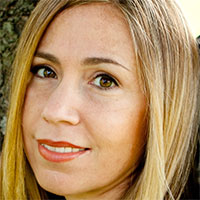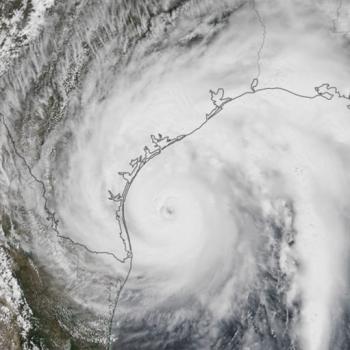This guest post was written by R.B. De Luise.

The poet Lord Byron said: “There is something Pagan in me that I cannot shake off. In short, I deny nothing, but doubt everything.”[1] Great thinkers, across the centuries, have always used inquiry to understand the world. It doesn’t mean that nothing can be believed, but it does mean that skepticism and doubt are human inclinations that lead us toward growth.
Nietzsche’s famous quote that “God is dead”[2] was originally intended to mean that societal perspectives had “killed” God, rather than the actual death of a supernatural entity. Society (believers included) made God irrelevant.
In another work, Nietzsche wrote: “Really unreflective people are now inwardly without Christianity, and the more moderate and reflective people of the intellectual middle class now possess only an adapted, that is to say, marvelously simplified Christianity.”[3]
Is this reflective of many religious institutions and their collective members in the 21st century? Christians are often lumped together into a collective body, yet have little to no “public” intellectual power, in politics, science, and culture. Why?
Broadly speaking, Fundamentalist Christians have “privatized” Christianity, leaving little room for the intellectual exercises within the world of thought that leads to true growth and increased effectiveness in understanding and communicating our spiritual journeys.
Thus, Nietzsche’s point is well taken — surface understandings of God eventually result in a religion without a head, or a heart.
Conversely, autonomous and inquisitive thinking, exemplified in everyone from Da Vinci, to Franklin, to Einstein, means the ability to think for oneself, despite societal and religious norms to do otherwise. A constant theme throughout history’s greatest thinkers and doers is to trust oneself, rather than the currents within society. Only when one thinks for oneself is he or she truly able to live authentically — mentally, physically, and spiritually.
Transcendentalist Ralph Waldo Emerson said, “It is easy in the world to live after the world’s opinion; it is easy in solitude to live after our own; but the great man is he who, in the midst of the crowd, keeps with perfect sweetness the independence of solitude.”[4]
Within the Christian world (or any other religious sphere), we are constantly at risk of accepting homogenous thought that may be contrary to our personal truths, as they relate to God. The very act of faith requires us to be “in relationship” with our beliefs.[5] This sounds complicated, until we begin to see the kingdom of God as a myriad of relationships – with each other, with ourselves, and with God.
Ultimately, if we see faith as a “relationship with” what we believe, we can begin to unpack and deepen our understandings of ourselves and others, and the ways in which we are called to move in the world, and shape our surroundings.
To have faith in God means that we must trust in the knowledge we seek, gather, and experience, as well as trusting and respecting that God is also preparing others, though the process may look different: “And other sheep I have, which are not of this fold” (John 10:16).
When Christians rely on doctrine and dogma, rather than inquiry, critical thinking, and contemplation, the “practice” of Christianity can become merely a set of spoken beliefs, rather than a living, evolving authentic practice in faith.
We do not have to be identical sheep to share in our practice of faith. Faith is the habit within which we live in the kingdom of God, actively striving to grow, keeping our hearts and minds open.
—————————
- ^ George Gordon Byron, “Letter 209—to Francis Hodgson,” The Works of Lord Byron: Letters and Journals. Vol. 2, 2006.
- ^ Friedrich Nietzsche, “Zarathustra’s Prologue,” Thus Spake Zarathustra, trans. Thomas Common, 1999.
- ^ Friedrich Nietzsche, Daybreak, trans. R. J. Hollingdale, (Cambridge University Press, 1997), p92.
- ^ Ralph Waldo Emerson “Self-Reliance,” 1841.
- ^ Laurence Freeman, First Sight (Continuum, 2011), p14.
 About R.B. De Luise
About R.B. De Luise
Rachel Bailey De Luise is a writer and professor (Ph.D. in English Education and an MA in English Literature), and is fascinated by all things literary, cultural, spiritual, and philosophical. She blogs at rbdeluise.com.












